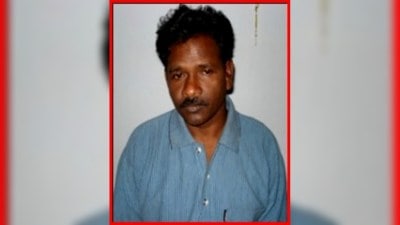Click here to join Express Pune WhatsApp channel and get a curated list of our stories
Hidden Stories: How Bajirao I’s sister Anubai Ghorpade, a forgotten queen, shaped Maratha history from the shadows
Anubai Ghorpade ruled as regent for nearly four decades, defending her territory and earning the admiration of Shahu Maharaj and the Peshwas. Even her enemies respected her judgment.
 Anubai’s leadership was a blend of intellect and empathy. (Express Photo)
Anubai’s leadership was a blend of intellect and empathy. (Express Photo)History often celebrates kings and conquerors, but between those grand narratives lie the silenced stories of women who led with equal strength, often without recognition. One such forgotten figure is Anubaisaheb Ghorpade, the Regent Queen of Ichalkaranji, whose leadership, resilience, and political acumen helped her principality thrive in the turbulent 18th century.
She was the daughter of Balaji Vishwanath Peshwa, the first Peshwa, and her brother was the formidable military leader Bajirao I. Anubai’s 76 years of life passed through some of the defining years of Maratha history, witnessing the rise of Bajirao I, the campaigns of Chimaji Appa and, later, the near-collapse of the Peshwa dynasty. She saw it all – not as a spectator, but as someone who shaped events quietly from the background.
Married when she was six years old to Venkatrao Ghorpade of Ichalkaranji, Anubai grew from a child bride into a sharp administrator and resilient leader. Ichalkaranji, located strategically between Karveer (present-day Kolhapur) and the Carnatic, was a small but significant principality that faced constant military pressure.
“When her husband was away on campaigns, it was Anubai who managed the administration, defense, and diplomacy. Her ability to keep Ichalkaranji stable amidst political turbulence speaks volumes of her strength,” says author Mohini Peshwa Karkarey, who has published the book Regent Queen of Ichalkaranji – Anubaisaheb Ghorpade.
Golden era of Ichalkaranji
After Venkatrao’s death in 1745, Anubai ruled as regent for nearly four decades – a period now remembered as the ‘Golden Era of Ichalkaranji’. “For 40 years, she held her ground, defended her territory, and earned the admiration of Shahu Maharaj and the Peshwas. Even her enemies respected her courage and judgment,” says Karkarey.
Anubai’s leadership was a blend of intellect and empathy. She was not only commanding armies but also nurturing stability. In her letters, she emerged as a woman who was politically sharp yet deeply humane.
In the face of difficulties, Anubai displayed not only strength as a public figure but also great emotional resilience. She suffered immense personal losses, losing her husband and, then, her son Narayanrao. Yet, she never let grief define her. “She transformed pain into purpose. Her focus remained on protecting her people and the dignity of her Sansthan,” says the author.
Yet, there were hardly any written records of the queen’s life. “To write about her, I had to reconstruct her story from scattered and indirect references in letters, family archives, and historical documents,” says Karkarey, who is a descendant of the Peshwas.
Click here to join Express Pune WhatsApp channel and get a curated list of our stories







